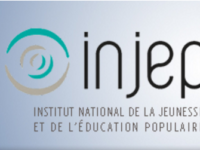If your organisation had a crystal ball, what questions would you ask about the future? What would you do with the answers it received? In this post, we consider the ways in which innovation agencies – government-funded or managed institutions that provide financial and other support to catalyse private sector innovation – can use imagined visions of the future to shape present decisions. Today’s innovation agencies take on a wide range of tasks and duties,...
Posts on Experimentation
This is a guest post from Johannes Mikonnen of Demos Helsinki, a partner in our recent work with the Latvian public sector. The world in which we live today calls for governments to find solutions to the most pressing challenges, and governments are falling short. Experimentation offers one particularly promising way for navigating the uncertainty and the rapidly changing circumstances of the 21st century. The Innovation Lab of the Latvian government embraced the transformative potential...
Christian Bason, Ph.D., is the CEO of the Danish Design Centre Editor’s note: The OPSI has partnered with the Danish Design Centre to further explore the application of tools and methods to public sector challenges. This article explores the varied spectrum of design disciplines and practices and provides guidance on how to choose the best design method, drawing from the diversity of design toolkits in the OPSI Toolkit Navigator. It also signals what is next...
Announcement: Public consultation has now been extended to 15 September 2019. Update: The final version of the AI primer has been published. As we mentioned in a blog a few months ago, OPSI has been working to develop a “primer” on AI to help public leaders and civil servants navigate the challenges and opportunities associated with the technology to understand how it may help them achieve their missions. Today, we are excited to launch a...
Over the last few months, the OPSI team did a lot of assumption testing, prototyping and usability testing of the “meta-toolkit” concept (which we are now calling Toolkit Navigator). This web resource will offer self-service guidance to public sector staff and policymakers on existing methods and toolkits, as well as related case studies, peer connections, and capacity building resources based on their specific needs and contexts. As we launch the beta site for the purpose...
OPSI met with the French Experimental Fund for Youth to discuss experimentation.
In September, OPSI launched the report “System Approaches to Public Challenges: Working with Change” on dealing with complexity in public policy. To take this work forward, we launched a series of workshops with leading countries to discuss how systems approaches could change the everyday functioning of government. We held the first one on September 6, 2017 in Brdo pri Kranju in cooperation with the Prime Minister’s Office of the Government of Slovenia. This work was...
This blog was authored by former OPSI intern, Théo Bourgery. In the context of the OECD’s “Evidence-Informed Policy-Making” conference, I had the opportunity to interview Kaisa Lähteenmäki-Smith and Camille Laporte on the role of experimentation in the drafting of evidence-based policies. As part of the ‘Evidence-Informed Policy-Making’ conference, co-organised by the OECD’s Directorate for Public Governance and the European Commission’s Joint Research Centre, Piret…
Wouldn’t it be great if you could play games at work? Sorry, I meant, wouldn’t it be great if you could play games at work and learn new skills at the same time? Here at the Observatory we’re interested in finding out more about how playing games can help public servants learn new ways of thinking and doing things. As part of our innovation lifecycle work, we want to better understand how to support public...
Have you ever heard the warnings “we shouldn’t innovate for the sake of it” and “innovation isn’t an end in itself”? In this somewhat contrarian post I’d like to suggest a different perspective, one that argues that innovation for its own sake is both: a) quite uncommon, as innovation usually serves a number of purposes, even if they are not always explicit; and b) not something to worry about even when/if it does happen, and...










